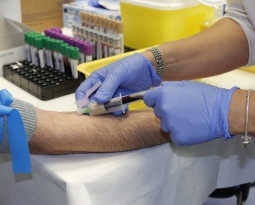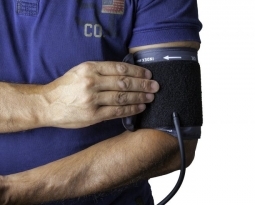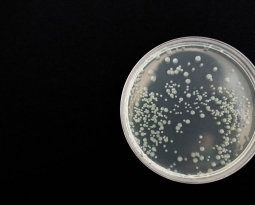New Hampshire Patent of the Month – August 2022
Diabetes affects more than 30 million people in the United States alone. Many of these people are then met with complications, from blindness to heart disease. With such staggering rates, being able to accurately predict someone’s risk for diabetes related complications can go a long way in improving their individual treatment. Unfortunately, this has been no easy task. In fact, there have been virtually no new biomarkers identified for the early detection of diabetic complications in 30 years. The known biomarkers are still met by significant limitations. For instance, while the presence of albuminuria might indicate a high risk of diabetic kidney damage, many diabetic patients with this biomarker do not end up with this particular complication.
PreventAGE HealthCare, LLC has been focused on diabetic research since their founding. As a part of this mission, the company has developed and patented a test capable of determining a diabetic patient’s risk rate of developing cardiovascular complications. This includes both microvascular and macrovascular damage.
The solution analyzes a patient’s sample to determine the quantity of specific biomarker groups using Liquid Chromatography or Triple Quadrupole Mass Spectroscopy tests. The biomarkers to be identified include those in groups comprising lysine advanced glycation end products, arginine advanced glycation end products, and oxidation products. The identified levels are then compared against standard values to determine the risk.
PreventAGE HealthCare developed this solution after numerous clinical studies identified these biomarkers as having the potential to differentiate between high and low risk individuals. The studies found that those with increased biomarker levels were seen to have increased formation of advanced glycation end products (AGEs) as well as increased glucose-induced oxidative stress (OS). THe presence of AGEs and OS are key contributors to the activation of pathways that produce diabetic complications. This means determining a high quantity of either the outcome (AGEs or OS) or the causative biomarkers can indicate risk of complications.
The sample analysis is compiled in a Compass™ report (Complications Propensity Assessment) which explains the patient risk and leads the way to personalized treatments, improved outcomes, and reduced overall healthcare costs.
Are you developing new technology for an existing application? Did you know your development work could be eligible for the R&D Tax Credit and you can receive up to 14% back on your expenses? Even if your development isn’t successful your work may still qualify for R&D credits (i.e. you don’t need to have a patent to qualify). To find out more, please contact a Swanson Reed R&D Specialist today or check out our free online eligibility test.
Who We Are:
Swanson Reed is one of the U.S.’ largest Specialist R&D tax advisory firms. We manage all facets of the R&D tax credit program, from claim preparation and audit compliance to claim disputes.
Swanson Reed regularly hosts free webinars and provides free IRS CE and CPE credits for CPAs. For more information please visit us at www.swansonreed.com/webinars or contact your usual Swanson Reed representative.

















